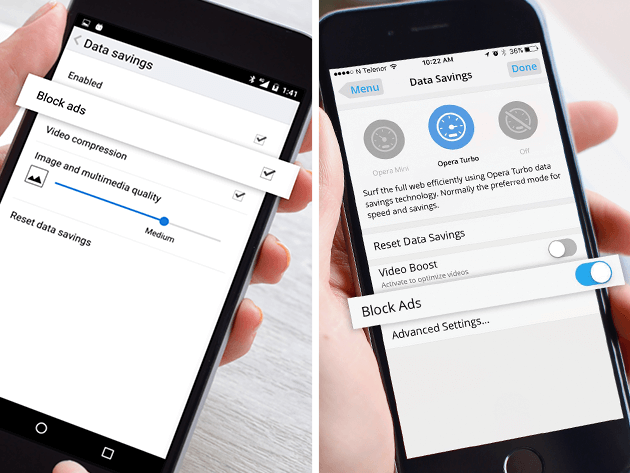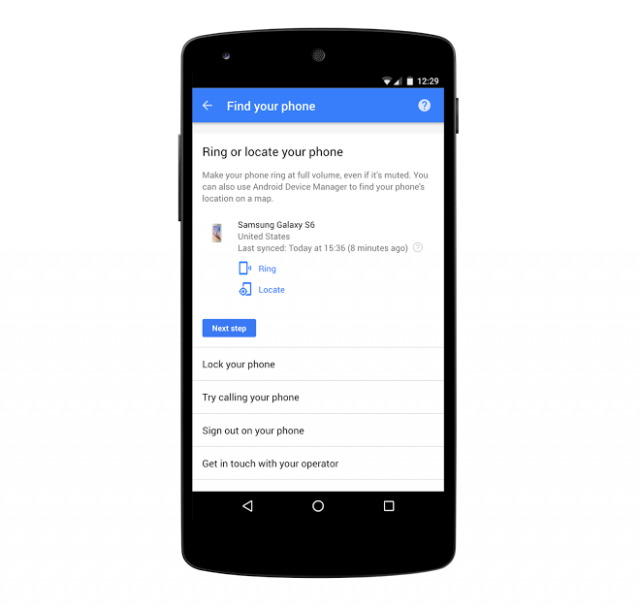
Opera now lets you block ads on Android, iOS and Windows 10 Mobile
Opera Software made a bold move earlier this year when it introduced a native ad-blocker in its desktop Opera browser. While controversial, this feature is not enabled by default though promises to offer some major benefits, like a 40 percent boost in performance compared to an extension like AdBlock Plus.
However, folks are not only saying "No" to advertisements on their PCs but also on their smartphones and tablets. In fact, mobile ad-blocking usage has seen a 90 percent rise year-over-year, with more than 400 million devices said to run an ad-blocker. The latest versions of Opera Mini for iOS and Windows 10 Mobile and Opera for Android now cater to that growing audience too, as they too feature a built-in ad-blocker.

Most of us rely on social media for news
In the lives of many consumers, social networks have begun to replace traditional news outlets as their primary source of news, making it much more difficult for publishers who still rely on a more traditional business model to earn revenue from their stories.
In its annual report on digital news, the Reuters Institute for the Study of Journalism (RISJ) highlights the rise of Facebook, YouTube and Twitter and how they transformed the way news media is consumed today. The institute conducted a study across 26 countries that found that over 50 percent of all the Internet users turned to social media to get their news.

Majority of web services and mobile APIs are unsecure
More than 60 percent of web services, or mobile app APIs have at least one high-risk vulnerability, which can potentially lead to a compromised database. Those are the results of a new and comprehensive report by High-Tech Bridge, summing up the trends in web security for the past six months.
The report also says that in case a website is vulnerable to cross-site scripting (XSS), it is also vulnerable to other critical flaws, in at least 35 percent of cases. Other vulnerabilities include SQL injection, XXE or improper access control.

Responsive websites trump mobile apps
GovInsider recently did an interview with Ben Terrett, the former head of design at the UK Government Digital Service (GDS), about the GDS’s success in the digital realm. The two discussed mobile apps, why websites are better, and what needed to be done in order to have a successful digital project.
Terrett said the problem with mobile apps is that they are a huge undertaking -- not only is it expensive to make an app (or multiple apps, or an app ecosystem) but also to support it and update it following various software changes.

Lookout and Microsoft partner to protect enterprise mobile
The world is becoming increasingly mobile first and businesses need to ensure that their data is protected however it’s accessed.
Mobile security specialist Lookout has announced that it's partnering with Microsoft to deliver integration of its Lookout Mobile Threat Protection with Microsoft's Enterprise Mobility Suite.

Mobile workforces put businesses at increased risk
A more and more mobile workforce is leaving US businesses vulnerable to increased risk of data breaches and theft of information.
This is highlighted in a survey of executives and small business owners by secure data destruction company Shred-It.

Lost your Android smartphone or iPhone? Google will help you find it
There are lots of services that help you find your lost smartphone, but nothing beats the convenience of a built-in tool like Android Device Manager or Find My iPhone. However, Google might have something that's even better.
Google believes that locating a smartphone should be as simple as a Google search, so the company has introduced a new feature in My Account that lets you do just that. And it works no matter if you have an Android smartphone or iPhone.

420 million mobile device users block ads
Businesses whose revenue come from mobile ads will seriously have to consider an alternative, because news just came in about a significant rise in mobile ad blocking usage.
According to a new report by PageFair, a start-up helping publishers get around ad blockers, and mobile app tracking company Priori Data, there has been a 90 percent rise in mobile ad blocking usage, compared to the same period last year.

Three steps to BYOD bliss
BYOD has now become so prevalent that 29 percent of UK secondary schools are now operating some sort of BYOD policy including asking students to bring their own devices. While the enterprise world has been talking about BYOD for years, it’s this kind of mainstream use that confirms BYOD as a way of life, and of business.
While there are clear benefits in terms of productivity for example, unfortunately, security still remains a key concern. In order to take advantage of the potential benefits and avoid the security risks, organizations need to do three core things: develop a robust BYOD policy, choose the right security technology, and support the people using it.

UK carrier Three will block ads for a day
In an attempt to improve the daily lives of its customers, Three is planning to block ads for all of the customers using its network in the UK.
The company will block all mobile ads for its users for one day next month. The trial will last for 24 hours but if it is received successfully by Three customers, the company has hinted that it would be willing to expand its experiment.

Nearly half of European workers use personal devices for work
Shadow IT, or stealth IT, is a practice still commonly used by European workers, according to a new Fuze report. It means employees are using either hardware or software that has not been directly approved of by the IT department, risking security breaches.
The report, entitled "App Generation report", argues that 40 percent of employees are using their personal devices for work. The same goes for software and apps.

Mobile security is not a concern for European workers
Businesses in the UK, as well as elsewhere in Europe, are not really worried about security, as their employees increasingly use company mobile devices, new research has shown.
Secure identity solutions firm HID has revealed that 77 percent of employees in the UK aren’t concerned about mobile security, highlighting a pretty high level of confidence in they have in mobile security. Looking at Germany, the percentage stands at 82. Overall, 74 percent of European workers are confident about using corporate mobile devices.

Why aren't we buying tablets anymore?
Six years after the release of the iPad, a once booming market is on the verge of a massive shift, one that not many predicted. For those who visited Mobile World Congress, the world’s largest mobile conference earlier this year, you had a better chance of spotting the odd person wearing Google Glasses than any new tablet devices.
According to the recent industry analysis conducted by IDC, the tablet market was down by as much as 10.1 percent, last year, with an estimated 206.8 million tablets shipped. That’s down from 230.1 million shipped in 2014. These stats are a bit better if you look at other research numbers, which estimate that 224.3 million tablets were shipped in 2015, compared to 242.2 million in 2014 -- a decline of only 8.1 percent.

Samsung's next Android flagships may have 6GB of RAM
Each new generation of Android flagships seems to push the limits of what we consider high-end hardware specifications. A few years ago we were looking at sub-5-inch displays with 720p resolutions and dual-core processors with 2 GB of RAM, and nowadays larger, 2K displays backed by octa-core chips and 4 GB of RAM appear to be the norm.
While the bump in resolution and processor speed may not be as noticeable when moving to a new-generation flagship, the extra RAM is certainly a welcome addition. Of course, for some companies not even 4 GB is enough in this department, as Samsung just unveiled a larger module, which should be available in its next flagships.

Brands fail to meet mobile communication expectations
Brands aren't doing enough to meet their customers' expectations for mobile communication, according to a new survey.
The study, by web convergence company tyntec and technology research specialist Ovum, of 1000 people in the US and Germany finds that customers prefer to interact with customer service agents using different communication channels depending on where they are in the transaction process, and that they expect service providers to be effective using mobile.
